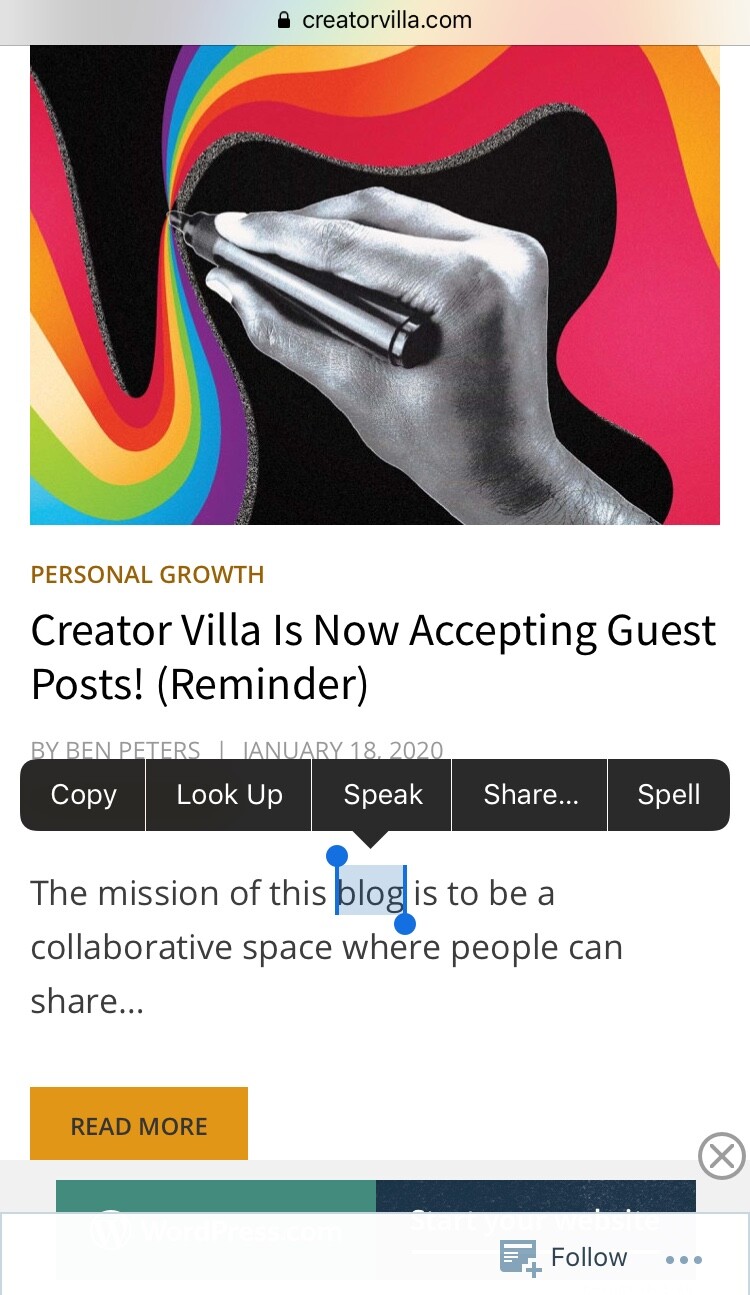
This is one of the easiest articles I have ever written because what I talk about has been a daily part of my lifestyle for more than a decade. In high school, I made a habit of looking up all the words I didn’t know—starting in English, and from there progressing to Spanish and Arabic. At first it was frustrating. I had a special dislike for everything I could not understand. And my teachers assigned a lot of reading—both modern and classical—so there was plenty where that came from. But over the course of a couple years, something amazing happened—it got a lot easier. There were far fewer words I did not know. And my intelligence, confidence, reading comprehension, and communication skills increased. I could understand almost everything I read, and I could express myself far more clearly and effectively than before. My habit of looking up words also accelerated my proficiency in Spanish and Arabic, which has been a great asset to my life. In fact, I think my habit of looking up words was the best thing that ever happened to my education.
Ask seven language experts what the average size vocabulary is and you will get seven different answers. And there is a difference between active and passive vocabulary. Active vocabulary are words you know and use. Passive vocabulary are words you know but don’t use. Passive vocabulary is much larger. One lexicographer (dictionary expert) Susie Dent estimates that the average person knows 20,000 words actively and 40,000 words passively. How would your life be different if you were armed with a much larger vocabulary, both active and passive? Without further ado, I present to you 7 time-tested, fact-based, undeniably compelling reasons to look up words you don’t know.
1. We Live In The Era of the Written Word
For most of human history, communication was primarily oral. People didn’t sit down and read for hours on end like they do today for school, work, entertainment, or pleasure. The printing press, mass education, globalism, and the internet changed all of that. Now knowledge has accumulated more than at any other point in history–by a large margin. And we are exposed to that knowledge on a routine basis. As knowledge increases, vocabulary needs increase because language is the medium through which knowledge is understood and transmitted. In a word, the more vocabulary you know, the better you are able to thrive in the 21st century.
2. You Will Save Time and Energy in the Long Run
When you see a word you don’t know and choose not to look it up, one of two things will probably happen. A) You will see that word again in the future and look it up; or B) You will spend time trying to decipher the meaning of the word and the meaning of the sentence in which it appears. Being able to derive meaning from context is a good skill that you will naturally get better at over time. But in many cases, you simply don’t know unless you look it up. And you run the risk of inferring an incorrect definition, which comes with its own set of problems. When it doubt, get it out. And I’m talking about the dictionary.
3. Your Communication Will Be More Effective
Have you ever had a hard time expressing yourself in words? Of course you have — we all do on a regular basis. The bigger your vocabulary, the easier it will be to express yourself and understand others when they express themselves. Sometimes we want to say more and sometimes we want to say less. Sometimes we want to confront head-on and sometimes we want to exercise finesse. Having a big vocabulary affords the best chance to nail our communicative objectives, whatever they happen to be. Also, new words are often coined to capture concepts that would otherwise take a long time to describe. For example, if we didn’t have the word election or marriage, it might take us three or more sentences to explain the meaning every single time. As a result, the more words we know, the more efficient our speech is. In sum, vocabulary facilitates communication, and communication is power.
4. Your Communication Will Be More Artistic
The primary purpose of language is functional, but it is so much more than that. Language is art. And the more words you have in your arsenal, the more you can produce and appreciate language’s aesthetic value. Words sound differently, and some go better together than others (For further reading, Google “collocation”). The bigger your vocabulary, the better your language will sound, both orally and in writing. And the more vividly and imaginatively you will be able to express yourself. Do you know anyone whose speech is a joy to listen to owing to their rich vocabulary? A few names jump to mind. In fact, I think artful communication is one of the most underappreciated products of education.
5. Your Confidence Will Increase
Understanding is a combination of smarts, experience, and education—all of which we value as human beings. As a result, it is easy to lose confidence when we don’t understand something. Why are so many of us afraid of lawyers, calculus, and the future? It is the primitive fear of not knowing or not being able to understand, which was often a matter of life and death for our ancestors. In high school, I loathed not being able to understand partially because it felt like a knock on my intelligence. Of course, that wasn’t true—I just needed to take time out to learn the language that was being used. Understanding makes us feel good about ourselves, while ignorance has the opposite effect. One of the main motivations for having a big vocabulary is confidence.
6. It Is Easier Now Than Ever To Learn New Words

In the old days, if you wanted to learn a new word, you had to consult a thick hard-back dictionary, spend minutes flipping through it, and hope the word you were looking for was there. Or you had to ask someone who claimed to know the word, and hope they were leading you down the right path. Some of you, like the author of this post up until middle school, grew up in an era before major advances in technology forever changed the game. Now it is easier than ever to look up words, and you can throw hope and wasted time out the window. Of course, there’s dictionary.com Or if you’re like the vast majority of people reading this, you can effortlessly install a built-in dictionary on your smart phone (iOS or Android). See the image I uploaded of my phone, (iOS 13). I simply highlight a word and click “look up.” It is the most laziness-proof process ever invented. And it would have been a pipe dream for many people of past generations for whom learning new words was a time-consuming process.
7. Your Ability To Master Foreign Languages Will Exponentially Increase
This one doesn’t apply to all of you, but it applies to enough of you. The greater mastery you have over your native language, the easier it is for you to acquire a foreign language. And every experienced language learner knows it. For example, the Spanish word for forceful is “contundente.” If I know what the word forceful means, then I can make a one-to-one connection and learn the new word with ease. Otherwise, the process of learning the word for the first time will take many times longer. This may not sound like a lot, but if you’ve ever studied a foreign language, this amounts to a difference of hundreds of hours in the long run. Bottom line: The better you are in your native language, the easier you can pick up a new one. And it isn’t even close.
Tell me what I missed down below and whether you agree that looking up new words is the way to go.

[…] well. For years, I made a habit of looking up words all the time, both in Spanish and Arabic (see here), and that made exam day a lot […]